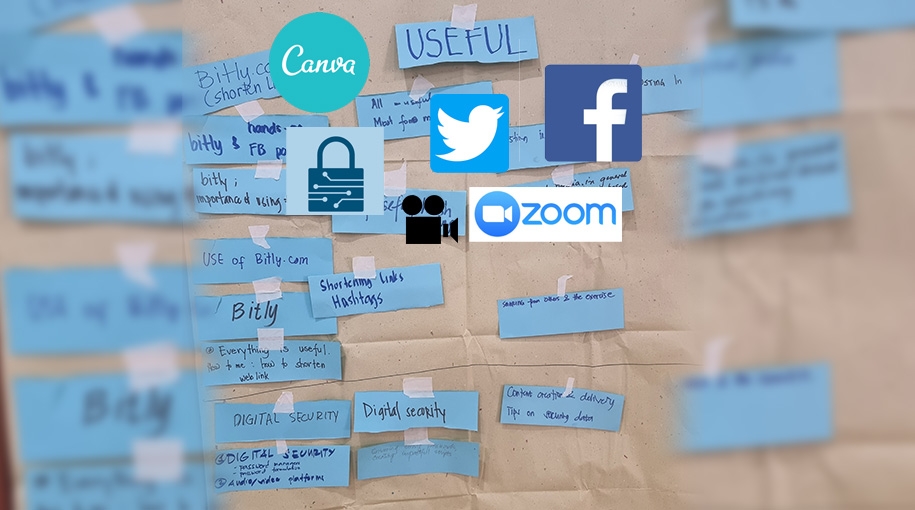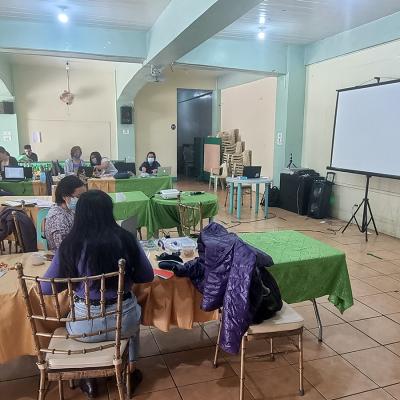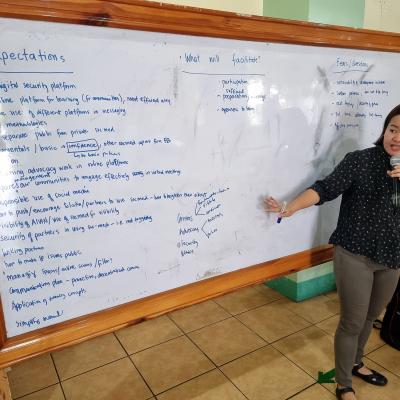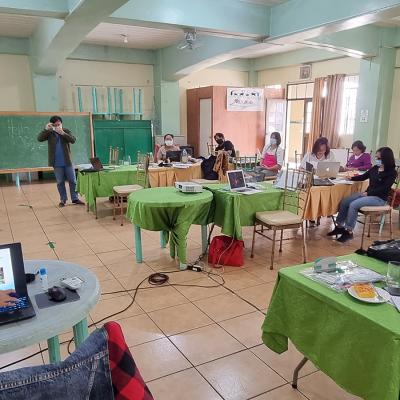“Whether in person or virtually, indigenous peoples need to have a seat in the decision-making table. But the pandemic highlighted historical and long-standing marginalization of indigenous peoples in terms of necessary infrastructures and technology for communications.”
According to Helen Biangalen-Magata, Tebtebba Communications Officer and one of the resource speakers of the training, “the event is a pre-requisite for many indigenous peoples so that they are not further left behind in many virtual processes happening now—processes that require their engagement, processes that require their voice, processes that require their presence”.
Tebtebba and the ELATIA Indigenous Peoples’ Training Institute launched a three-day internal Training-Workshop on Enhancing the Use of Social Media and Digital Security on 14 to 16 April 2021 in Baguio City, Philippines, which was participated in by the different staff of Tebtebba.
The training was intended to improve the capacity of the different key program staff to coach or mentor indigenous partner organizations and communities towards their meaningful engagement in various national and international processes being done virtually.
The training-workshop revolved around the use and management of the different social media platforms including Facebook, Twitter, and Zoom. Several hours were also used to discuss digital security including password and contact details protection. The activity involved experience sharing and identifying the dos and don’ts of attending different online meetings. Various software applications were also introduced to further enhance content creation skills.
Because the pandemic heavily impacted the ease of conducting face-to-face gatherings, more and more activities shifted online including dialogues between indigenous peoples and the government, advocacy-oriented webinars, regular partner consultations, and so forth. In these varied virtual meetings, the necessity of learning and improving social media use were, in the process, identified.
“With the difficult pandemic situation, the training-workshop was a very timely initiative. The skills learned during the event will definitely enhance our collective capacity as indigenous peoples engaged in advocacy work, bringing forth the different indigenous peoples concerns and priority issues to various local and global processes,” enthused Grace T. Balawag of Tebtebba’s Climate Change Adaptation and Mitigation Program. “These virtual platforms must, indeed, be maximized so that our key advocacy messages may be effectively communicated and disseminated. Hopefully, we can extend such significant trainings especially to our local partners to further enhance our collective indigenous peoples’ advocacy work.”
The social media training is an offshoot of the previous Dayalogo series that was facilitated by Tebtebba between indigenous peoples and relevant national government agencies in the Philippines that began in 2020. The training was made possible with the support from Bread for the World.

















